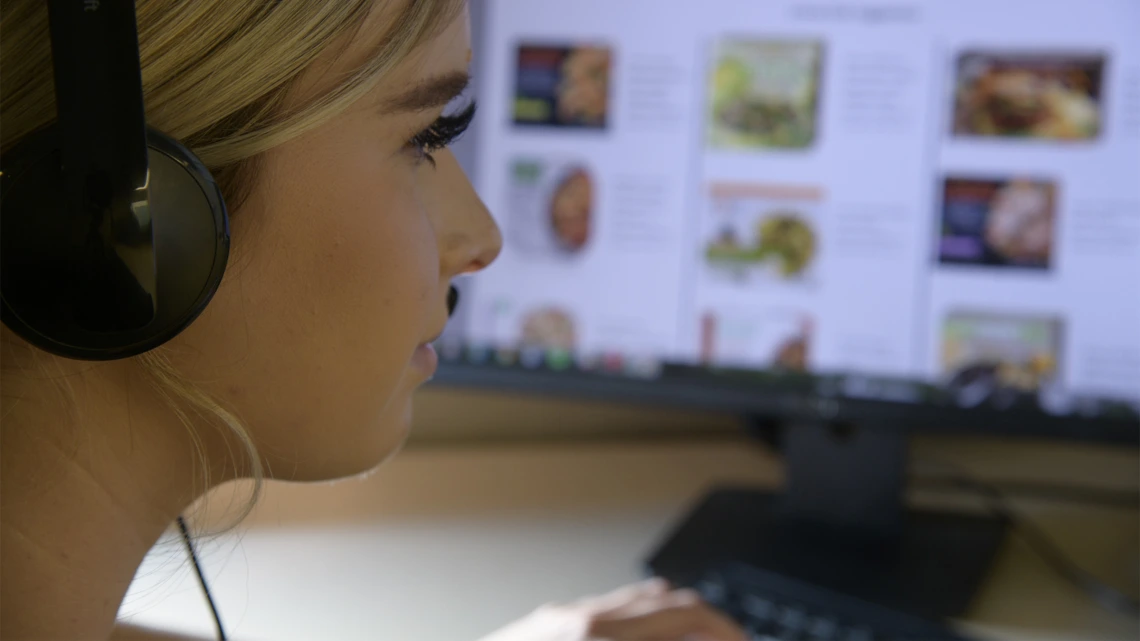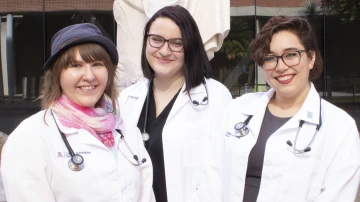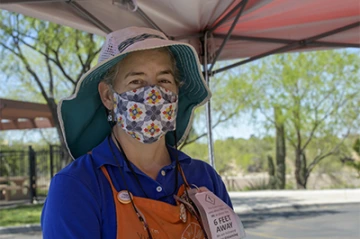Student Guest Column: Ways to Help During the Pandemic If You Can’t Be on the Front Lines
Not everyone can volunteer on the health care front lines, but there are other ways to help the community cope during the COVID-19 pandemic.

People who are unable to help COVID-19 relief efforts on the health care front lines can do other things to support their community.
By Britt Gratreak, first-year student, College of Medicine – Tucson
The first half of medical school can be summarized as learning how to learn. Students take on vigorous studying, difficult exams and absorbing content in a way that is often compared to trying to drink from a fire hose.
While clinical skills comprise a part of early medical education, these limited hands-on experiences mean first- and second-year medical students aren’t prepared to be of direct help in a medical capacity during a global health crisis.
Amid the COVID-19 pandemic, many medical students feel an urgent drive to help, along with a pang of powerlessness, especially for those with high-risk health conditions.
When calls for childcare, grocery delivery, and other direct needs arose, students who are at higher risk of developing severe complications from the virus may have felt especially insufficient. Not only are they unable to help directly on the front lines because they’re in the early part of their medical education, but they could be risking their lives to provide even the most basic forms of help to their communities.
Nonetheless, there are many things students and community members can do to help while protecting themselves and practicing safe distancing:
Tips for Health Sciences Students
- Help secure personal protective equipment (PPE) and other supplies for frontline medical workers. Work together so that you can make calls and someone else can pick up or deliver supplies.Image

Britt Gratreak is a first-year medical student at the University of Arizona College of Medicine – Tucson, pictured (left) with her classmates Rebecca Allen and Alicia Sandoval, who lead Medical Ethics Reality Forum (MERF) together and now hold virtual events.
- Telemedicine is an opportunity to serve patients in high-risk groups. The Arizona Center on Aging is accepting volunteers to provide geriatric telehealth services to help provide frequent check-ins, resources and appropriate referrals. Reach out to other departments and help start a telehealth initiative if one does not exist already.
- Donate your scrubs, chemistry lab goggles and other supplies to frontline workers.
- Create a regular virtual meetup for classmates to join. In the class of 2023, a student with extensive knitting knowledge hosted a Stitch 'n' B*tch session, and the Medical Ethics Reality Forum (MERF) now hosts a weekly Friday night ethics series via Zoom.
- Identify patient populations that may be losing access to essential services and look out for them by addressing resource shortages in real time. Give your local organizations a call. Oregon Health and Science University (OHSU) medical students released a guide focused on the care for people with substance use disorders and encouraged others to follow their lead by replication.
- Help local health departments by checking for remote opportunities available at the county and state health departments.
Five Things We Can All Consider Doing
- Make washable masks to help organizations ensure that their efforts meet new CDC guidelines. FoodRX President and first-year medical student Rebecca Allen arranged for the creation and delivery of masks to community food bank staff and volunteers. The College of Medicine – Tucson’s Commitment to Underserved People (CUP) program is recognizing this work as hours of service, and is reimbursing students for the cost of their supplies, though local businesses have donated mask-making materials.
- Volunteer with local or national hotlines such as Emerge Center Against Domestic Abuse, Crisis Text Line and The Trevor Project. Help the LGBTQIA+ community, who face additional challenges under quarantine, by volunteering to help nationwide TrevorChat or TrevorText initiatives.Image

Homemade masks are a way to help prevent the spoead of the virus that causes COVID-19.
- Give others a break and offer fun live events like telling stories, playing music or academic tutoring for K-12 students.
- Make an appointment to donate blood if you can. Blood supplies are critically low due to canceled blood drives. One donation of whole blood can potentially save three lives and blood can be donated every two months. Recently, restrictions for men have been changed, and the UArizona Tucson chapter of MedPride is advocating against restrictions based on sexual orientation.
- Make and keep up connections while encouraging the serious benefits of physical distancing. Check on your family, friends, colleagues, and classmates, and rally them to join you in these volunteer efforts.
There are so many ways to help the community without taking unnecessary health risks. The community needs ideas, passion and drive from all of us. Being cautious to protect one’s own health, or a family members’ health, doesn’t shut off all opportunities to get involved and assist others.

